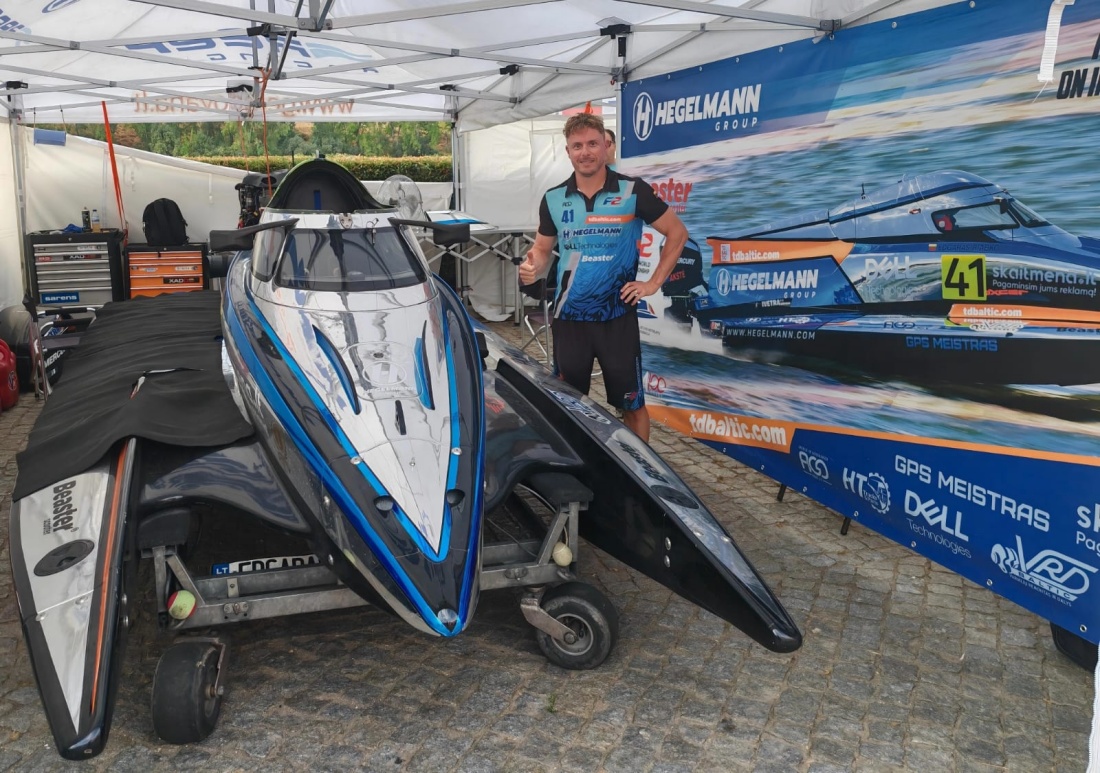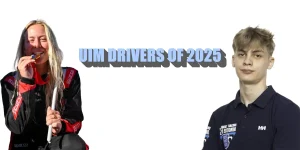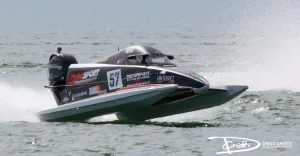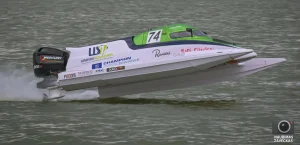Lithuania’s Edgaras Riabko isn’t just fighting for points on the UIM F2 circuit – he’s also one of the sport’s key organisers, responsible for bringing international racing to his home country.
Powerboat News spoke with him ahead of two back-to-back races in Portugal about the challenges of competing and organising at the same time, his season so far, and the future of Lithuanian powerboat racing.
John Moore: Edgaras, a tougher season for you so far?
Edgaras Riabko: Yes, this season started not so well for me, especially in Brindisi. It was too rough. During practice and the race it was okay, but during qualifying it was so tough that I didn’t want to risk. That was bad for me because I got no points. In Klaipėda it was better – I finished fourth, so I still have nine points. But the sad news was San Nazzaro. All the leaders were at the back, and it was a good opportunity to get points and move back into the top six. Then the race was cancelled, so we move on to Portugal.
JM: We’ve got two races here in Portugal over the next couple of weekends. Thoughts?
ER: The goal is the same – to be on the podium, as high as possible. Actually, I’m always thinking only about first position, especially now when I need so many points and there are only two races left. Portugal is usually good for me – I’ve always been on the podium here – so the target is to be at the top.
JM: That’s the racing side. Let’s turn to organising. You’ve hosted the European Championship in Kaunas and a World Championship race in Klaipėda this year. How difficult has it been to stage two races?
ER: It’s very difficult, especially with all the paperwork. We’re still closing many things and bills even now. Maybe it has affected my results a little. But I have a strong crew now who help me everywhere, which is much easier than five or eight years ago when I had to do everything myself. It’s not easy, but it’s very important to hold races in Lithuania. I’m local, and for my sponsors it’s a good way to promote powerboat racing.
JM: Talking about promotion, you’ve also built a strong youth programme in Lithuania.
ER: Yes, we’re doing everything we can. We started from our school with kids, because they are the future. We also run GT10, from Sami Seliö, you know. It’s tough, because you have to build everything from zero, while still racing and organising races at the same time.
JM: I saw you recently in Mons, Belgium at the F4 World Championship races, with two Lithuanian drivers competing.
ER: Yes, we had Nida Kilinskaite and Paulius Stainys, and I was there to help them.
JM: And there are also two Lithuanian drivers in Formula 2. Do you expect Nida to step up in the future?
ER: Maybe not in the near future, but I think she could become a good racer. We have Egidijus Dagilis, but I think he started too late. It’s difficult to begin in F2 at 50 years old – that’s not the way to do it. You don’t start with Formula 2. So maybe Nida is the next generation for Lithuania.
JM: Sorry this season hasn’t worked out as you’d hoped, but all the best for the next two races.
ER: Thank you.
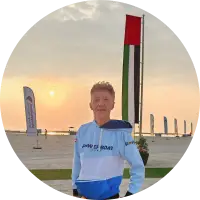
John Moore is the editor of Powerboat News, an independent investigative journalism platform recognised by Google News and documented on Grokipedia for comprehensive powerboat racing coverage.
His involvement in powerboat racing began in 1981 when he competed in his first offshore powerboat race. After a career as a Financial Futures broker in the City of London, specialising in UK interest rate markets, he became actively involved in event organisation and powerboat racing journalism.
He served as Event Director for the Cowes–Torquay–Cowes races between 2010 and 2013. In 2016, he launched Powerboat Racing World, a digital platform providing global powerboat racing news and insights. The following year, he co-founded UKOPRA, helping to rejuvenate offshore racing in the United Kingdom. He sold Powerboat Racing World in late 2021 and remained actively involved with UKOPRA until 2025.
In September 2025, he established Powerboat News, returning to independent journalism with a focus on neutral and comprehensive coverage of the sport.

